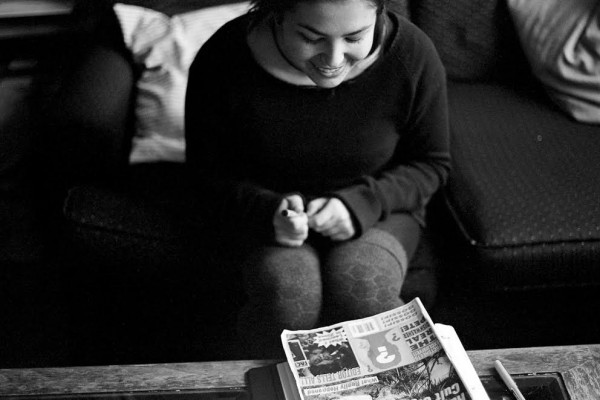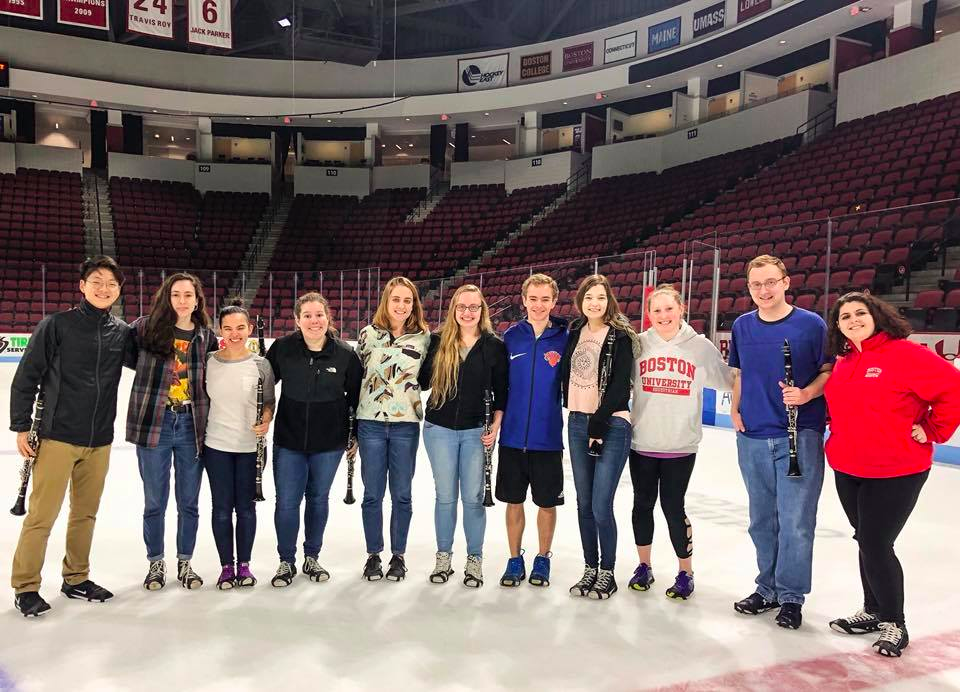By Kylie Obermeier
Photos by Reid Haithcock
There are a lot of libraries in the Boston municipality. 120, to be exact. You can find just about any book you want.
Except you probably can’t find much on a feminist practice of BDSM or radical parenting styles. You likely can’t find copies of hand-assembled, self-published works that exist in limited quantities. And I am 100 percent certain none of those libraries have a feline angel named Fluffybutt who will knead your lap while you peruse these publications. There’s only one library he calls home.
That would be the Papercut Zine Library, quite possibly (although it’s not technically verifiable) the largest independently-owned, all-volunteer, circulating zine library in the U.S.
A “zine”, short for magazine, is a piece of self-published writing or art, or often a combination of both. Usually it is photocopied, has a small circulation, and is rooted in a D.I.Y. ethos. Papercut’s collection demonstrates the huge range of zine subjects and styles.
Papercut was formed in 2005 by an anarchist collective called the Boston Anti-Authoritarian Movement, but later grew and separated from the group. Since then, it has jumped around to different locations, from the Democracy Center in Cambridge to Lorem Ipsum Books in Cambridge’s Inman Square most recently.
But when Lorem Ipsum went out of business last October, the Papercut team had to quickly find another space to house its collection. Their current location in Allston is acting as a temporary space until they find a more permanent—and ideally independent—space.
“I hate to say it would be legitimizing, but it would be legitimizing to get our own space, get on our own feet,” said Brittany Mitchell, librarian of three years. “We’re keeping our ear to the ground in case something pops up, then we’ll pursue it. This space is giving us the time to find the perfect space.”
Mitchell said that will probably mean a move back to the Cambridge/Somerville area, where she said it’s more affordable and the library has built a loyal member base.

No matter where the library lands, anyone can join Papercut’s 1,600 members with a one-time, sliding-scale donation. This enables library-goers to check out four of Papercut’s nearly 16,000 zines for up to four weeks at a time (although currently, circulation is on hold.).
Even if you’ve never picked up a zine, you shouldn’t let that prevent you from checking out the library. While Mitchell admits that the most frequent visitors are “zinesters” (people who make zines), plenty of people not involved in zine culture utilize the library.
“We also get a lot of people who are older punk parents bringing their kids in,” said Mitchell. “And journalism or creative writing students who are looking for information and resources they can’t find anywhere else.”
To Mitchell, who is a zinester herself, its role as a source for alternative information is one of the things that makes Papercut such an important institution.
“It’s something that comes out of punk culture/D.I.Y. ethos,” she said. “It’s an important resource for the community, especially in a city that’s being constantly regentrified. The library can serve as an intro to radicalism for younger folks and students.”
She added that it can serve as a platform for marginalized groups such as queerfolk and transfolk whose opinions aren’t as welcome in mainstream culture.
The library puts on a fundraiser every year with zine-swapping and readings for the P.O.C. Zine Project, an organization that works to “make zines by people of color easy to find, distribute, and share.”
Another recent event Papercut held was a release for a collaboration zine overseen by Mitchell called House & Home. The cost for attendance was $3 or a batch of cookies.
Papercut always uses a flexible payment approach, including with events like zine workshops and pop-up libraries, which are their main source of income.
“We’ve charged from as little as $1, from other all-volunteer organizations, to $300, from museums like the ICA (Institute of Contemporary Art), which can afford it,” said Mitchell. “We’ve even done some for free.”
Mitchell hopes they can do that more often. She’s made it her personal mission to get more grants from groups like the Somerville Arts Council, so Papercut can more frequently offer services free of charge. She also hopes it will enable the library to thrive long into the future.
At the very least, the Papercut team can celebrate everything they’ve already accomplished thus far when the library reaches its 10th anniversary this May. Mitchell’s words bursted out in a passionate gush as she reflected on Papercut’s history, and the possibility of it ever coming to an end.
“We have such a legacy of punk and anarchist history,” she said. “We’ve been around for a decade. I think it’s a testament to the way the community has supported us, and we’ve supported the community. It would be terrible to see Papercut ever go by the wayside.”
If you’re interested in visiting Papercut Zine Library, they’d prefer you contact them for their address via email (papercut@riseup.net) or text/calls (617-871-9463). More information can also be found on their website.




